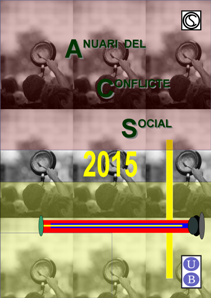12. Radicalization and Jihadism in Ceuta
Keywords:
Islam, fundamentalism, Ceuta, religiosity, conflictAbstract
In Ceuta, with a population divided into two ethnic-religious groups, Christians and Muslims, in a situation of virtual numerical parity, the dynamics of both everyday life and social conflict has a strong religious and identitarian component. For decades, the Muslim population in Ceuta has, by and large, been prone to coexistence, making this value the axis of interethnic and interfaith relations. The setting in of Islamic fundamentalist currents has introduced an element of tension within the Muslim population itself as well as in the relationship of this with other groups of population, a fact that has been aggravated by external factors such as the wars in Afghanistan, Iraq or Syria. In recent years, there has been a significant growth of the jihadist recruitment networks in the city, and the number of Muslims, men and women from Ceuta, who have come to that call to travel to the war zones, especially Syria, has increased. This is presented as a potential threat to peaceful coexistence of the citizens of Ceuta, as it has broken mutual trust and enhanced the existing social segregation.
Downloads
Published
How to Cite
Issue
Section
License
AUTHORS RETAIN COPYRIGHT. CREATIVE COMMONS
The authors who publish in this journal agree to the following terms:
- The authors retain the copyright and grant the journal the right of first publication of the work, which will be disseminated following the Creative Commons Attribution license.
- Authors are free to establish additional independent contractual agreements for the non-exclusive distribution of the version of the work published in the journal (such as publication in an institutional or thematic repository, their personal website or a book), provided have your initial publication in this journal recognized.
- Texts will be published under a Creative Commons Attribution License that allows others to share the work, provided they include an acknowledgement of the work’s authorship, its initial publication in this journal and the terms of the license.
- Self-archiving of pre-print and post-print versions is allowed.
Privacy statement
The email addresses and names entered in this publication will be used exclusively for the purposes declared and will not be used for any other urposes or made available to third parties.







